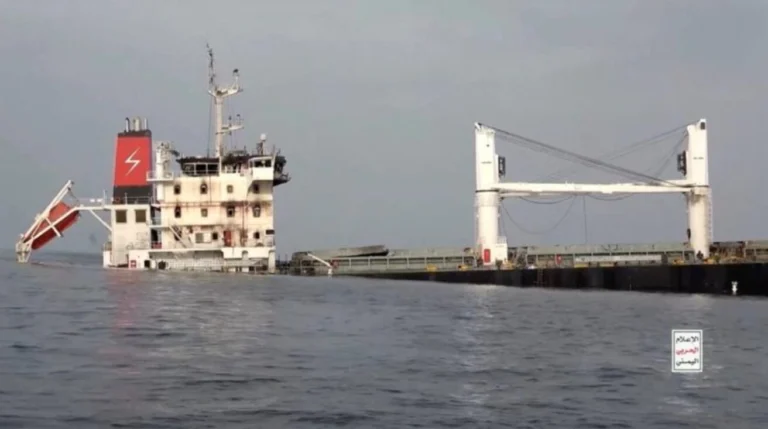Insurers Pull Coverage from Israel-Linked Ships Amid Renewed Yemen Strikes
Yemen’s strikes on Israel-linked ships have disrupted insurance markets and maritime trade, raising costs and geopolitical tensions in a key global route.

Red Sea shipping faces growing risk as Yemen targets Israel-linked vessels in response to Gaza aggression. Photo: HispanTV
July 11, 2025 Hour: 7:31 am
Yemen’s recent strikes on vessels with Israeli ties have triggered a swift response from global insurers, who are now pulling coverage amid escalating risk. As a result, Red Sea shipping has become increasingly volatile and expensive.
RELATED:
Global insurers are avoiding ships with direct or indirect links to Israel following a new wave of attacks by Yemen’s military. Sources in the maritime insurance sector confirmed to Reuters that companies are reassessing their coverage policies in response to the growing threat.
“What we’ve seen over the last week appears to be a return to the mid-2024 underwriting criteria, which essentially include any vessel with even a remote Israeli connection,” said Munro Anderson, head of operations at Vessel Protect, a firm specializing in war risk insurance.
Since November 2023, Yemeni forces have targeted more than 100 Israel-linked vessels in retaliation for Israeli military actions in Gaza. These operations have significantly disrupted Israel’s maritime trade through the Red Sea.
Although Yemen and the United States reached an agreement in May to halt mutual attacks, the Yemeni Armed Forces clarified that the ceasefire does not include Israel. They reaffirmed their “commitment to freedom of navigation for all, except for the Zionist enemy and those who support its aggression against Gaza.”
This week, Yemeni forces escalated their campaign, sinking the ETERNITY C as it headed toward Israel’s port of Eilat. Days earlier, they also struck and sank the Magic Seas, another vessel linked to Israeli interests.
As a result, war risk insurance premiums have more than doubled in recent days. Industry sources reported an increase from around 0.3% to 0.7% of a ship’s value. For some seven-day voyages, rates have reached 1%—matching peak levels seen during intense periods of conflict in early 2024.
These rising premiums translate to hundreds of thousands of dollars in additional costs per shipment. Some insurers have already suspended coverage for Red Sea transits entirely.
Earlier phases of the conflict saw many shipping companies halt operations in the region or sever ties with Israel, contributing to wider disruptions in global supply chains and further straining Israel’s maritime economy.
On Thursday, Yemen’s Ansarallah movement reiterated its warning to companies working with Israel, stating that the naval blockade would remain in place “until the aggression against Gaza comes to an end.”
As Red Sea trade becomes increasingly militarized, the fallout is beginning to affect global supply routes—particularly for Global South nations that depend on affordable, secure maritime transport. With no resolution in sight, insurers and shipping firms are being forced to navigate both political and economic hazards in one of the world’s most critical corridors.
Author: MK
Source: HispanTV

